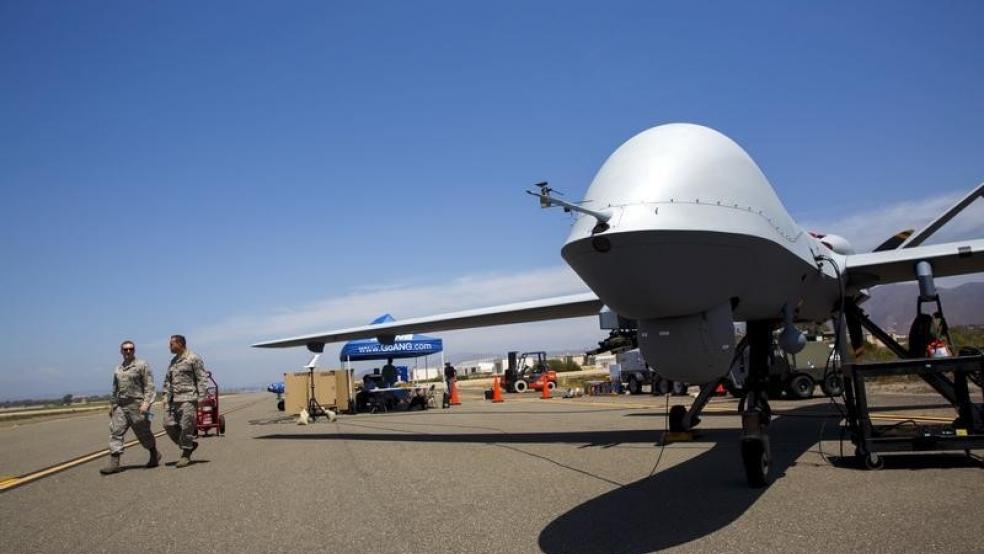Days after it unveiled a $3 billion roadmap to bolster its beleaguered drone fleet, the Air Force announced it will give the fleet’s pilots $125,000 bonuses to keep flying for a few more years.
Pilots who have six years flying experience following their undergraduate remotely piloted aircraft (RPA) training — at which point their service obligation expires — would receive five annual installments of $25,000 if they stay in the service, the Air Force said Tuesday in a statement.
Related: Why the Air Force Is Requesting Billions More for Drones
The officers, who must hold the rank of an active-duty lieutenant colonel or lower, could opt to receive 50 percent of the bonus upfront.
“It is important to ensure RPA pilots receive a bonus that is equitable to other pilots,” Air Force Secretary Deborah Lee James said. “These airmen are making extremely important contributions to the fight; we need these professionals to stay with us and we’re committed to retaining them in our force.”
The new incentive program appears to be another way for the Air Force to shore up its drone program, which has been run ragged after years of conducting surveillance and deadly air strikes in countries such as Afghanistan, Iraq, Yemen and Libya.
The service trained 180 new pilots in fiscal year 2014, while 240 retired, according to data provided to The Los Angeles Times.
Related: The Pentagon Decides How Many Budget-Busting Bombers It Wants
The extra cash could help stop the flow of airmen into the private sector.
Drone pilots have long complained about working long hours in demoralizing work conditions at Creech Air Base in Nevada. Some have said they’ve been forced to work six days a week and flown between 900 and 1,100 hours a year. By comparison, fighter pilots typically log 200 to 300 flight hours annually.
Making matters worse, Creech, the central hub for all U.S. drone worldwide, has no housing, meaning pilots have to commute to and from the base near Las Vegas.





